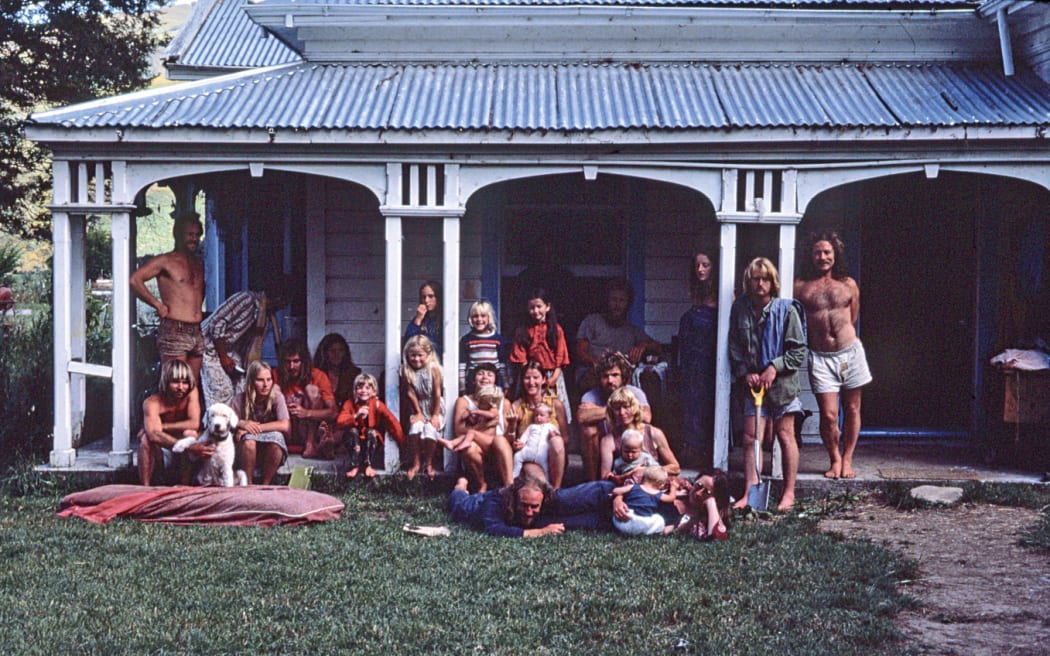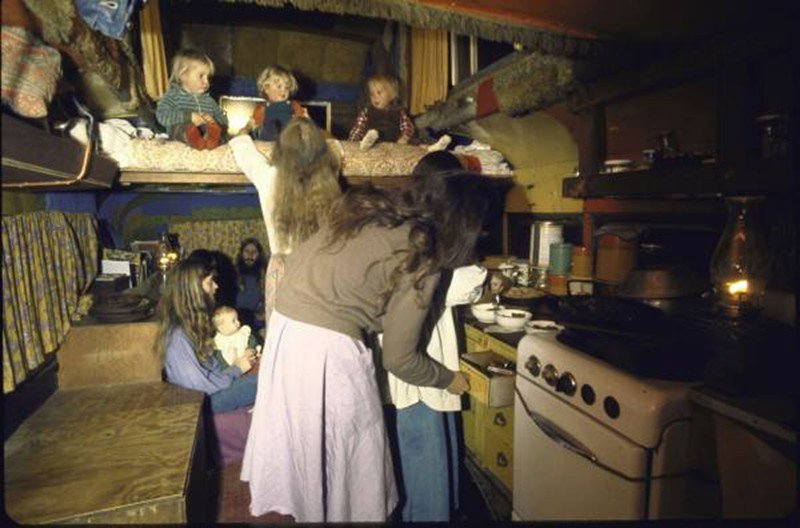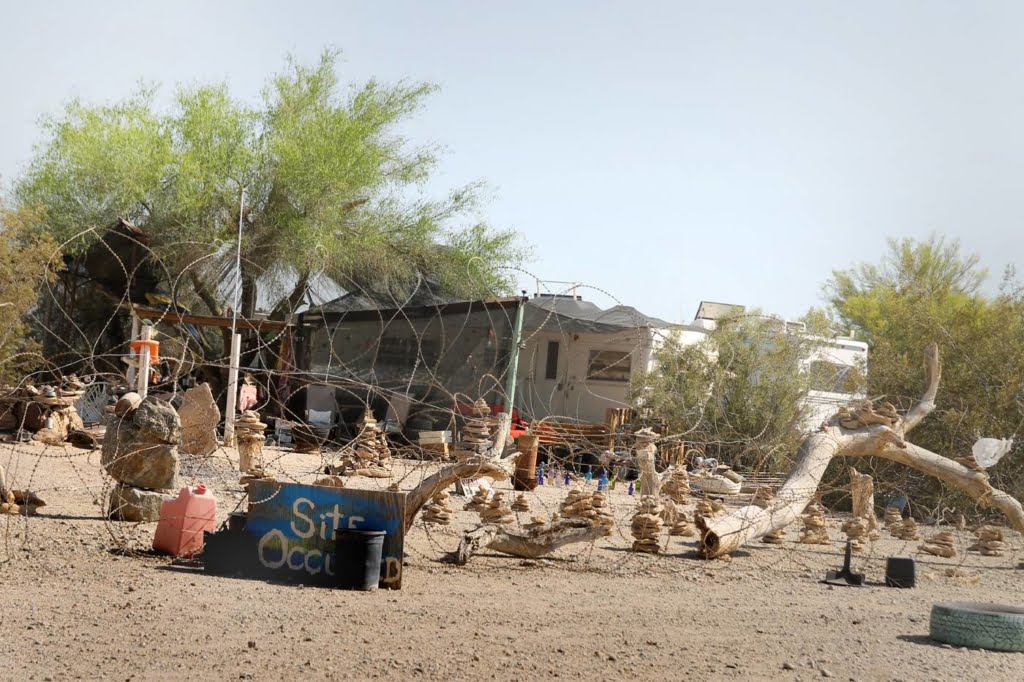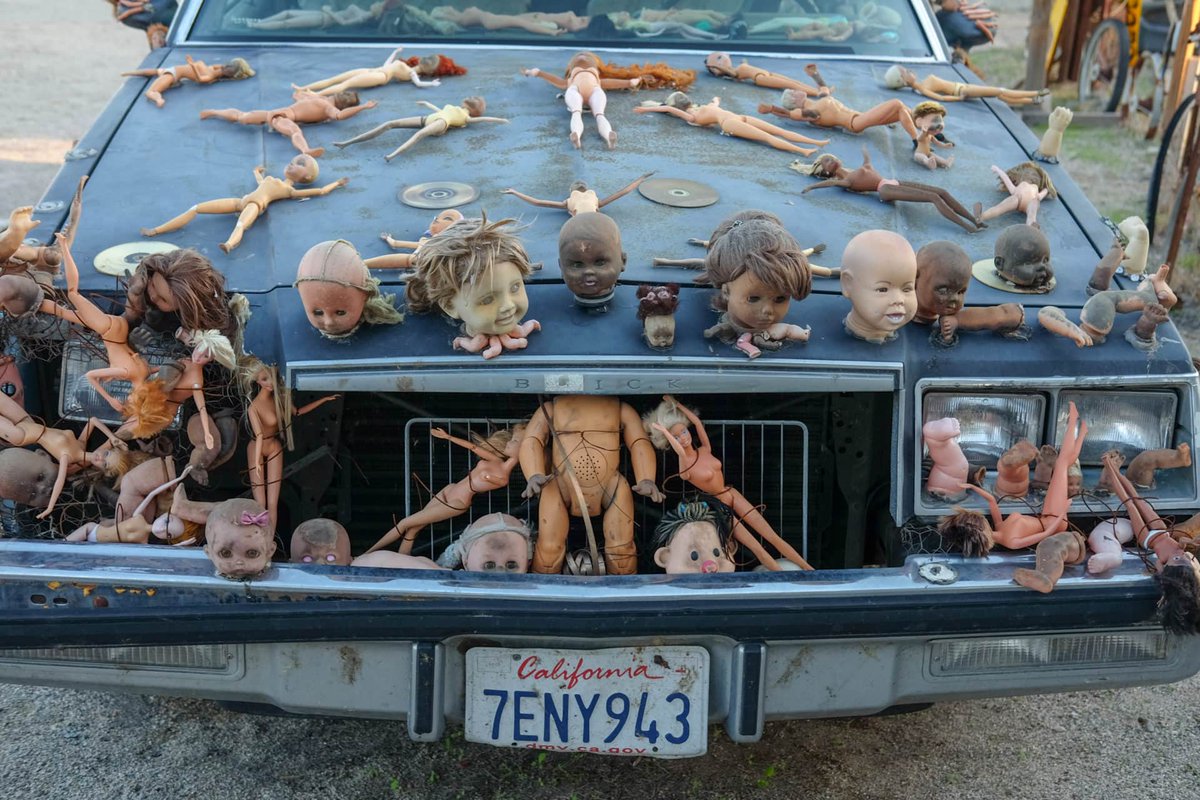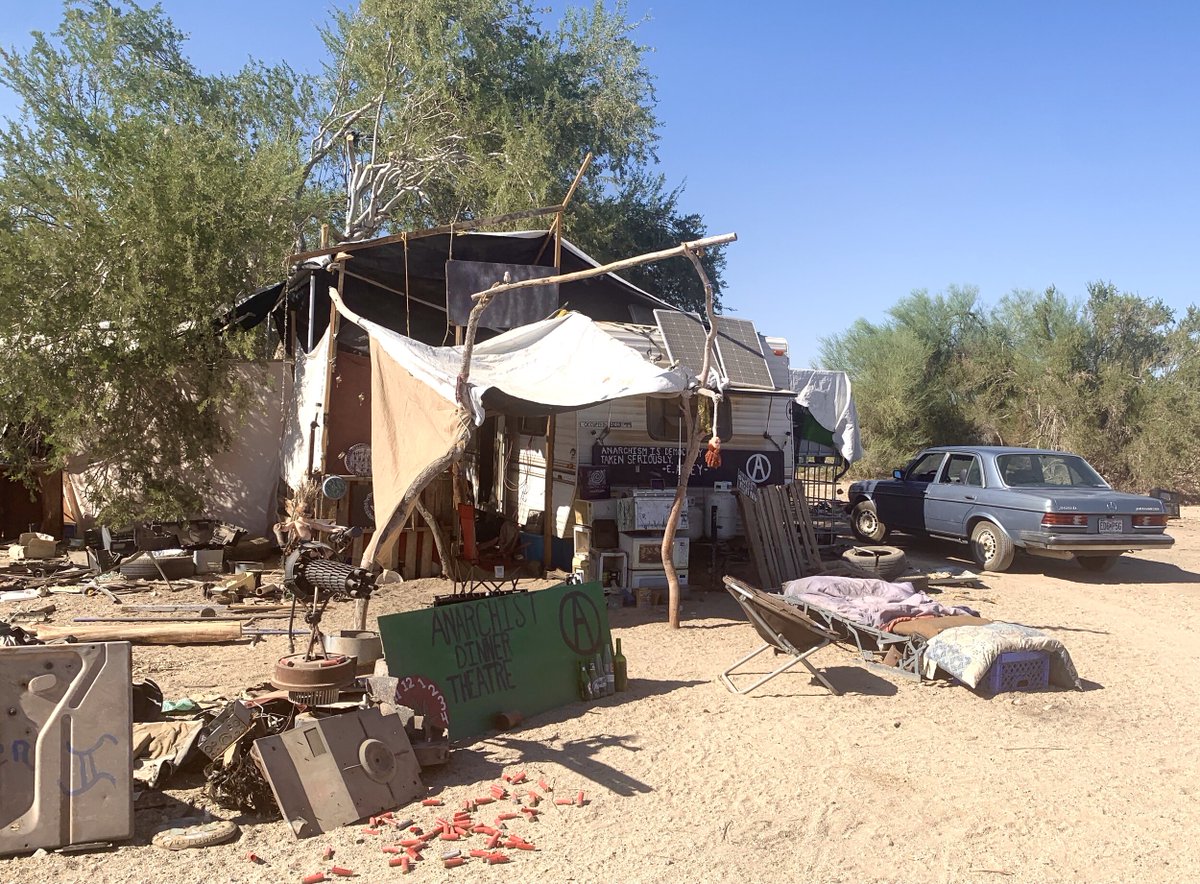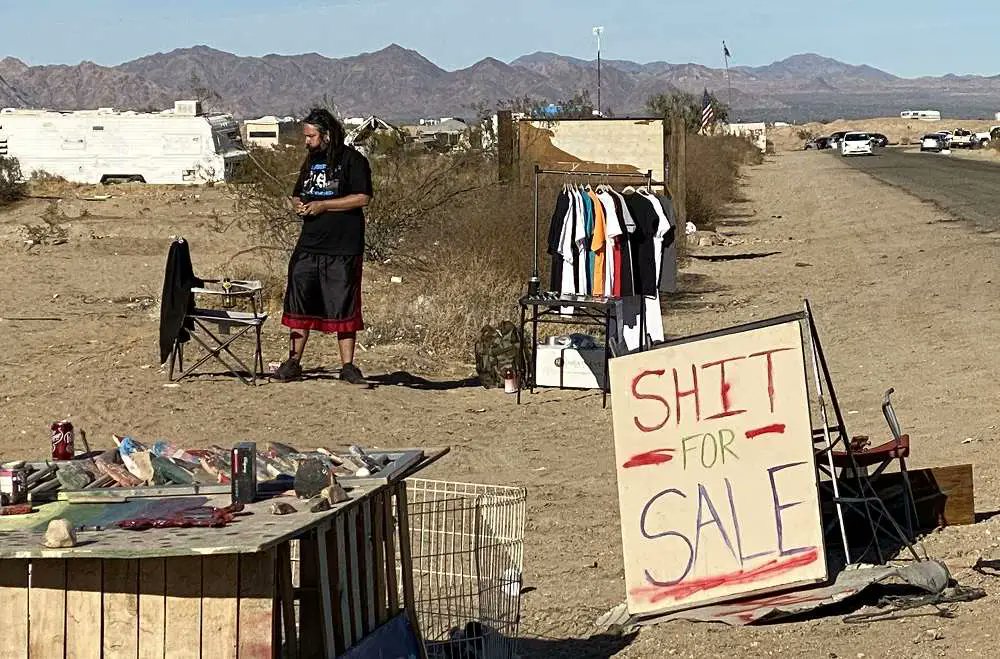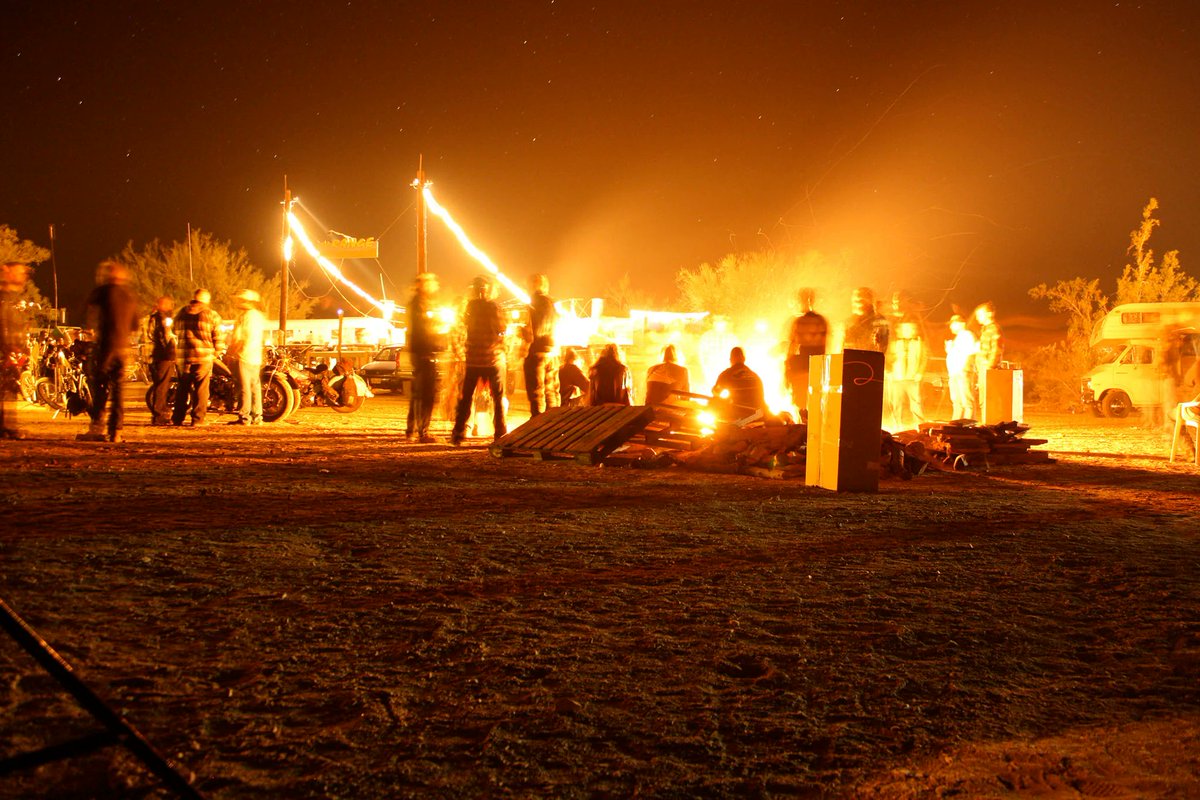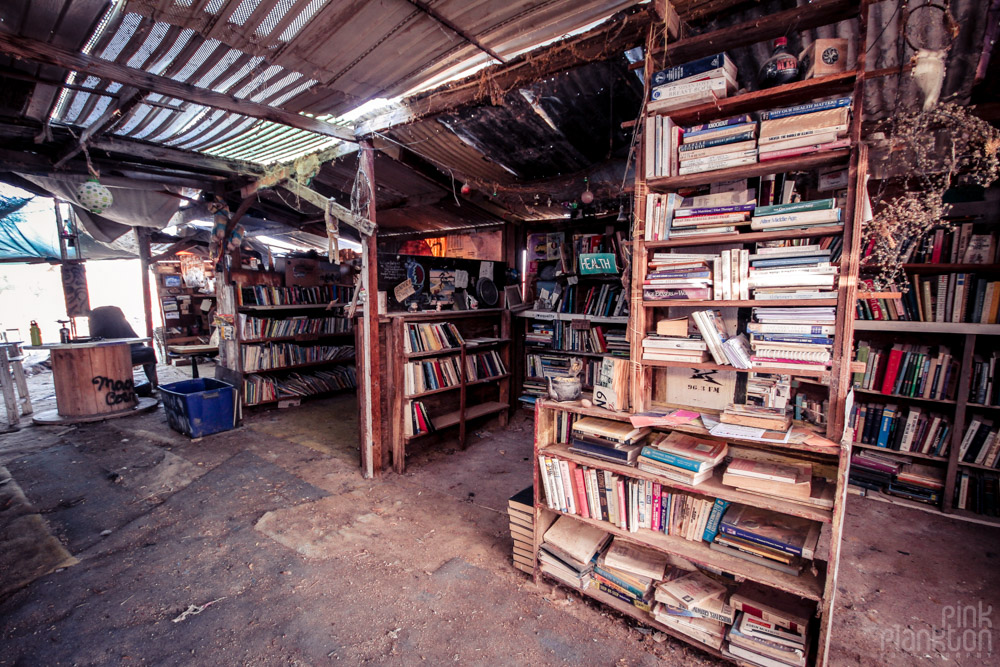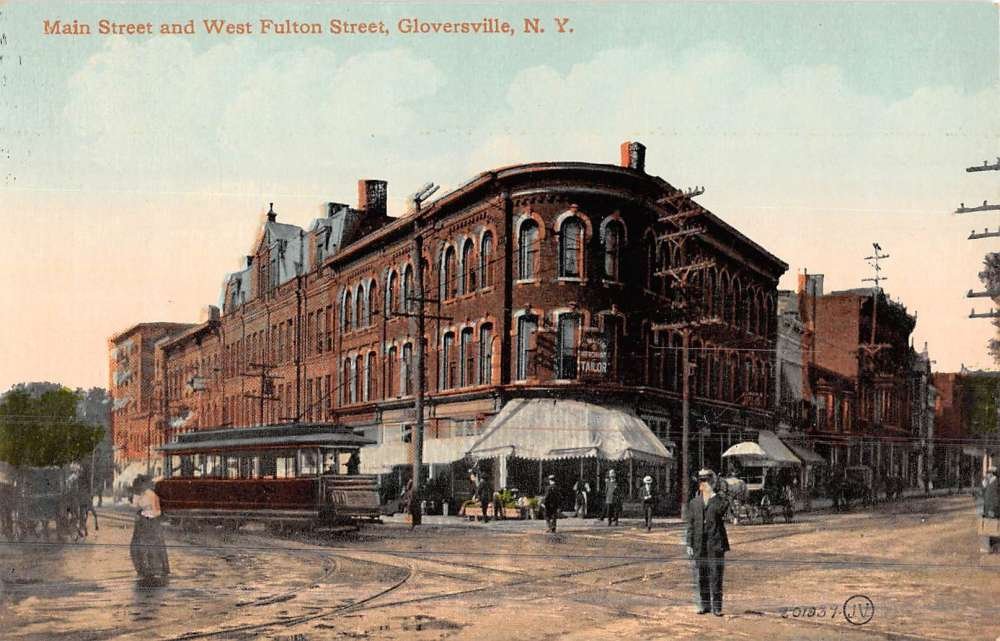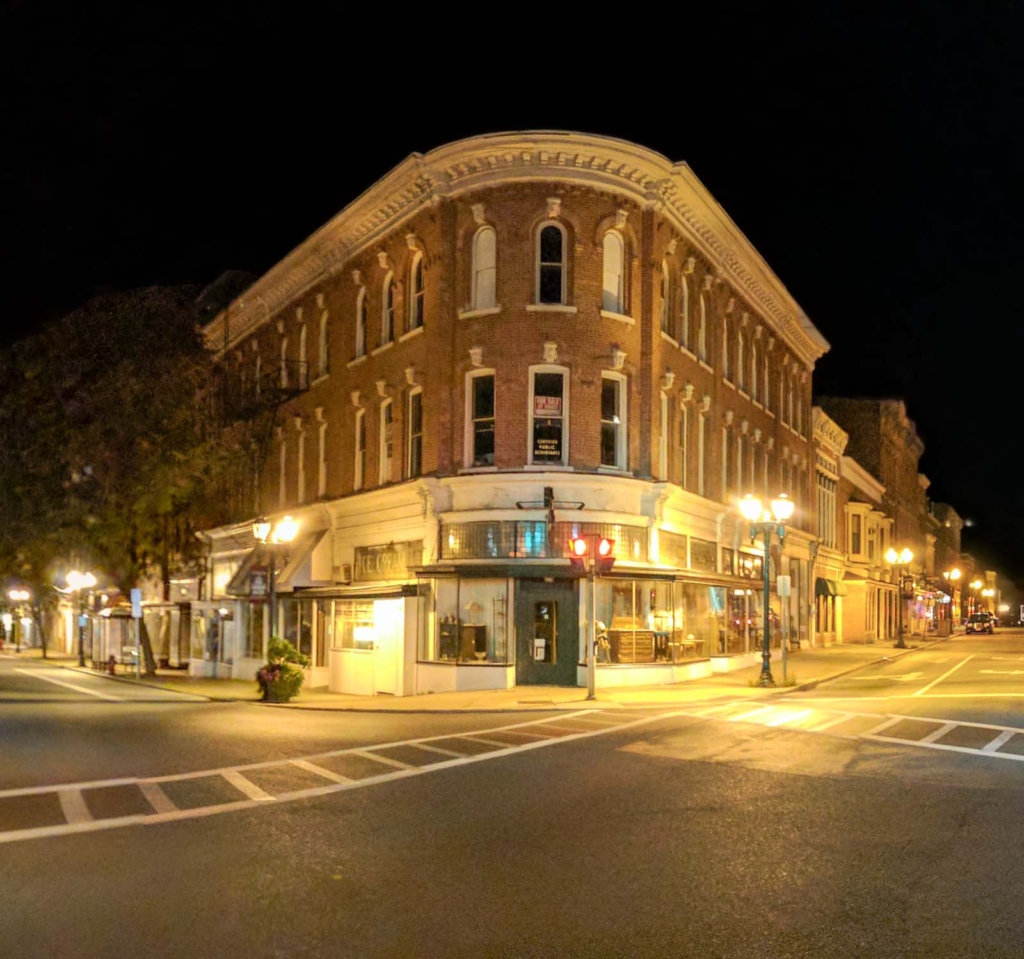For about 7 years, I lived with no fixed address. For 5 of those years, I was constantly traveling. Where the hell did I sleep?
About 7 nights in 10, I 'stealth camped' anywhere I could sleep without detection. In almost 2k nights out, I was caught <10 times.
Megathread
1/25+
About 7 nights in 10, I 'stealth camped' anywhere I could sleep without detection. In almost 2k nights out, I was caught <10 times.
Megathread
1/25+

'Stealth camping' involves violating numerous laws and social norms; tresspass and vagrancy laws make it illicit to sleep in any non-designated sleeping area. Vigilante landowners, cop-calling joggers, and rough-handed cops could subject you to a rude awakening or worse. 

But an axiomatic truth was consistently apparent to me: Enforcement of these laws and norms requires detection. Observation of peoples' habits provided insight into evading detection. Ex: Few are awake at 4:30AM, no one looks up, and there are many places no one goes on foot. 

Every 'blind spot' offered an opportunity: If I alter my habits to put myself in the blind spots of the public and LEO's while asleep, I can exploit that 'loophole' and successfully sleep for free.
The number one rule for the stealth camper is: You are now an early riser.
The number one rule for the stealth camper is: You are now an early riser.
Waking at 4:30am was a good rule almost anywhere. At that hour, no one is awake. Those who are are usually not walking around. The few who might be are less likely to see you in the low light of that hour.
Often, I could brazenly sleep publicly simply by waking at 4:30am.
Often, I could brazenly sleep publicly simply by waking at 4:30am.
This required either going to bed earlier or foregoing sleep. In time, there were two 'tiers' of camps for me: 'in-transit' and 'holed up'.
When traveling, I averaged ~5 hours of sleep. I could sustain that for 9-14 days. Then I'd find a better spot and 'hole up' to rest.
When traveling, I averaged ~5 hours of sleep. I could sustain that for 9-14 days. Then I'd find a better spot and 'hole up' to rest.
In 'travel mode' I would usually be hitchhiking - meaning I would have no clue where I'd land for the night. Sometimes it was an isolated boat launch or fruit orchard. Other times it was downtown in a top-10 city, or a suburban strip mall. I learned to adapt to every type.
The easiest areas were the rural places. I might get two rows into a cornfield and lay there, or put my hammock up in the rafters of a park pavilion (no one ever looks up). Any forested area far from homes is liable to be safe if camoflaged. Rivers have always been good to me. 

If traveling on the interstate, the forested or brushy sections around on-ramps were always safe. Or in treeless areas, construction sites were great - especially if they had stacked culvert pipe. There is nothing like sleeping in dry culvert pipe in a heavy rain. 

Suburban zones got interesting fast; slow-moving all-night auto traffic makes for many eyes. I fell into the habit of sneaking onto the roofs of fast food joints, using the pipes to climb up and tying a rope to my pack to hoist. You could sleep late on these. 



During cold snaps, going behind gas stations and sleeping under the warm exhaust from the refrigerators kept me alive several times. Always, behind gas stations and big-box stores there are weird unseen crevices and un-monitored patches of woods.
Another hugely important sleep spot was Home Depot and Lowes. Display sheds were often open and unsecured - they made for great sleeping from 9pm to 6am. U-Haul facilities also often had unlocked trailers. Highway dept. salt sheds were often suitable as well. 



Sometimes, especially in the plains and the desert, there's nowhere to hide. In these cases, I would try to find a truck stop (all of them but Love's let you sleep there) or a road bridge to sleep under. At worst, I taped trashbags to my tent to make myself look like trash.
The inner city required the greatest level of ingenuity due to constant traffic and eyeballs, and moreover - aggressive addicts who might try to rob you. I carried a hammock and a climbing harness for these times, exploiting the 'people never look up' rule. Absolutely wild. 

I mentioned aggressive bums. A vagabond is often subject to pack search by the police; for this reason no real weapons can be carried. I skirted this by building a piece of 3/4" rebar with ducttape handle into my pack frame. I only used it once. It was devastatingly effective. 

Often, there weren't suitable trees and hammocking wasn't possible. In those cases, my rule was to walk 3-4 miles and break camp on a bike trail. Bums congregate around downtown, and enforcement is focused there. Walk further than they're willing to walk and you're golden.
There were times where even 3-4 miles of walking didn't work - sprawling ghettos exist where you simply can't sleep. You need to keep walking all night. In those cases, I would have a coffee and screech to myself like a mental patient while walking. No one f*cks with crazy. 

I eventually got better methods for dealing with these situations. I started carrying a 'packraft' and telescoping paddle; cities on water often have unused islands mere hundreds of feet from populated areas. They make for absolutely dreamy campsites. 



And for a time I traveled with folding bikes. During this era of my travels, I always had the best camp spots even in megacities. Unfold the bike, ride toward water or open land, and find a top-tier campsite. Great for hitchhiking too, to get to a better hitching spot. 

One tip is this: know your setup so well that you can completely disassemble and re-assemble your pack and its contents in pitch dark. You cannot use lights of any kind to break camp or pack it up 80% of the time. And if woken you need to pack it up in 60s or less and SPRINT!
Sometimes, I tried especially creative methods I can't necessarily recommend unless in a bind. I once slept in someone's sailboat - but was nervous the whole night. In some cities, squatters exist; if they trust you you might get the invite. This gets dicey fast. 



When it comes to finding places to 'hole up' for a longer-term encampment there are no shortage of suitable places in this country. BLM land lets you 'dispersed camp' 14 days. State hunting land is easy. Most swimming holes in New England are suitable.
Often enough, if hitchhiking or road-walking long-distance, people will invite you into their homes or let you camp on their land. Workaway, HelpX, and WWOOF can also be useful ways to find a nice spot to stay for a while. You've got to be discerning but I never had problems. 

I'll also say that your gear matters, a lot. Keep your pack's 'base weight' under 15lbs, making exceptions only for specialty gear like packrafts, folding bikes, and hammocking gear. Make sure you can 'hug' your pack to sit in crammed car seats if hitching.
My best setup ever was a Dahon folding bike, an Alpacka packraft, a ULA Ohm frameless backpack (40L), a Klymit XL sleeping pad, Loco Libre 20f down quilt, US Army poncho 'tent' with 111" poles, silnylon bivvy sack, and MSR whisperlight international stove.
I'll add some closing remarks as this post already seems to be taking off. The biggest takeaway from this type of living is that every single day is a challenge or a puzzle - and it gets extremely addictive. Since doing a stint in the normal settled world, I have suffered.
This flavor of problem-solving taps into something ancient in us; it exercises the brain and body in a way that atrophies in a drywall box with bills on the kitchen table. Life becomes hyper-real, and every single day the natural environment around you matters profoundly. 

Sleeping in a normal room was impossible for a while after I quit traveling; I was known to opt to sleep outdoors in any weather when staying with family. Also noteworthy is that 'living in public' means interacting with others 10x more than in normal life. 

I got hooked on my circumstances oscillating me between socializing with others often and periods of isolation lasting for weeks. The slow burn of settled life is still, nearly 5 years later, extremely difficult for me to experience. Makes it hard to connect with others. 

If you read this and get the idea to do what I've done, be careful - you may be putting yourself on the path to pemanent lifelong maladjustment. You will lose out on opportunities, girlfriends, money, peace - and your back and knees will pay heartily for it too. 

You will also become "interesting" forever - and thusly find yourself in the role of the court jester or clown. People will want your 'stories' but won't really understand, and after holding court and telling them all, you'll still be alone - and crave the road again.
//end
//end

Addendum:
2500+ likes and you're telling me not one of them is from a single woman in the NE US under 35 who is saying to herself "damn I want this guy to ask me out so we can travel the world"??
It'd be rare but really the stuff of the greatest stories two people could live

2500+ likes and you're telling me not one of them is from a single woman in the NE US under 35 who is saying to herself "damn I want this guy to ask me out so we can travel the world"??
It'd be rare but really the stuff of the greatest stories two people could live


• • •
Missing some Tweet in this thread? You can try to
force a refresh


